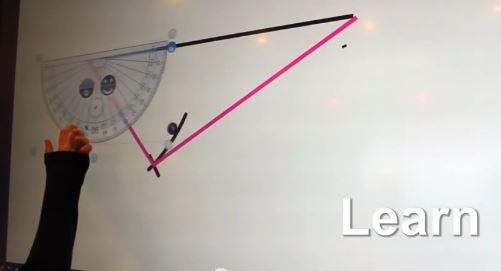Interactive Technology & Special Educational Needs
Aug 18, 2015In continuation of Tiny Green PC’s series of interviews in relation to technology and education, we have spoken with Jonathan Bishop, founder of the Centre for Research into Online Communities and E-Learning Systems.
Jonathan has conducted research into the use of Touch-Screen Learning Environments, served on the governing body of school, and is knowledgeable about the impact of technology in the classroom, especially in relation to those with learning disabilities.

Could you explain the reason(s) why you decided to explore the use of touch screen learning environments for educating those with special educational needs (SEN)?
At the time that I did that research we did not have the tablet devices we have today and I was interested in whether alternative computer interfaces - like touch screens - could improve learner engagement and realise learning outcomes.
What are the benefits of interactive e-learning for students with SEN?
E-Learning can include anything from a PowerPoint supported classroom to a course delivered wholly online.
The use of e-learning as a mode of delivery can help people with various disabilities. Some students could learn from home by distance learning, and others could be better integrated into the classroom - whatever works for each student.
In what ways do you think touch screen technology helps students with SEN feel socially included?
The introduction of tablets and mobile phones is enhancing social inclusion. At one point it would be rude for a student with a SEN to use their assistive technology in the company of others.
But now most people often disengage from a social situation by using their smartphone or tablet, meaning a person with a SEN will be able to use assistive apps on their smart devices without looking out of place.
 How do you feel advancement in touch screen technology will further the learning of children with SEN?
How do you feel advancement in touch screen technology will further the learning of children with SEN?
The use of haptic feedback and kinaesthetic learning could allow new ways of teaching that have not yet been discovered. The fact that many tablets now have motion detection will make the development of applications to support learning in this way possible.
How does interactive e-learning measure when compared to traditional teaching methods, and do you believe that it is a successful method of teaching the national curriculum to those with SEN?
Despite being an advocate of e-learning, having been a school governor it is my view that those who say computers in the classroom are over sold and under used are correct.
Hopefully with the national curriculum in England requiring the teaching of computer programming, those who lack the capability will be made to leave so that those who have the capability can take their place. In essence, ICTs have a big role to play in traditional learning environments, but it requires expertise that needs to be mandatory if e-learning is to be used to its potential.
Who do you believe can benefit most from the use of technology in the classroom?I served on the governing body of a school where most of the teachers lacked capability in the use of ICTs in education.
If it were made compulsory for ICTs to be used in school classrooms then all young people would benefit. The newly qualified teachers would replace the incompetent ones, and the younger learners would be taught by people who take technology as much for granted as they do.
If you would like to see how interactive touchscreen can help in your classroom or would like to book a demo, please contact us.
 Part of
Part of 